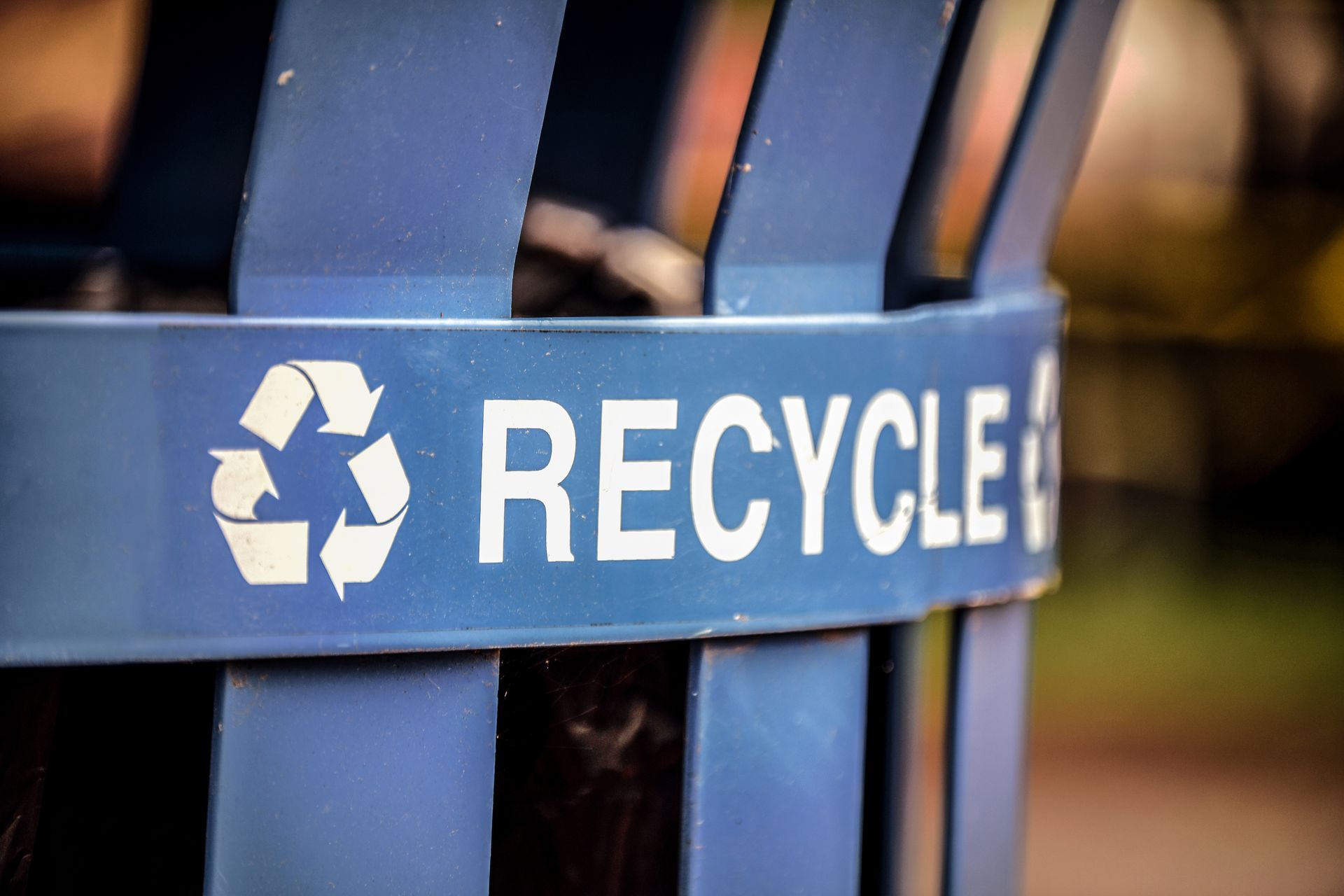Recycling Rate Tracking is Changing – Digitalizing Recycling Operations in the State of Virginia
A recent report out of the State of Virginia has recommended improving data capture from waste and recycling activities in the region.
The Virginia Department of Environmental Quality (DEQ) commissioned this report in response to a legislative mandate to study the state's recycling system and identify opportunities for improvement. As a result, Virginia’s Waste Diversion & Recycling Task Force was formed to carry out the study.
The goals were to:
- Assess the current status and challenges of recycling in Virginia;
- Evaluate best practices from other states and countries;
- Propose strategies to increase waste diversion and recycling rates;
- Identify opportunities to advance economic development and environmental protection.
A key takeaway from the
report was the need for enhanced tracking and accurate data capture from recycling operations to measure program effectiveness. To address these recommendations, industry participants must digitalize processes with technology and software. Digitalization of recycling operations not only supports these initiatives and mandates; it allows businesses to streamline recycling programs, reduce costs, save time, and improve efficiency.

The Potential Implications on Recycling Rate Tracking in Virginia
According to the Virginia Department of Environmental Quality (DEQ), Virginia's calculated recycling rate for 2021 was 43.3 percent. This rate was derived from recycling data submitted by 17 Solid Waste Planning Units (SWPUs) with populations over 100,000 that report annually. However, this rate may not accurately reflect recycling performance in Virginia. It includes credits for solid waste reused, non-municipal solid waste recycled, recycling residues, and source reduction programs. There may also be variances in the data collection and reporting methods used by different SWPUs.
Adopting a more standardized and transparent approach to data capture is essential to address these challenges and improve tracking in the State of Virginia and beyond. Digitalization of recycling operations can help organizations measure and monitor their waste generation and diversion rates accurately and efficiently. It can also help optimize waste management processes, reduce costs, and enhance customer service.
The Current State of Digitalization in Recycling
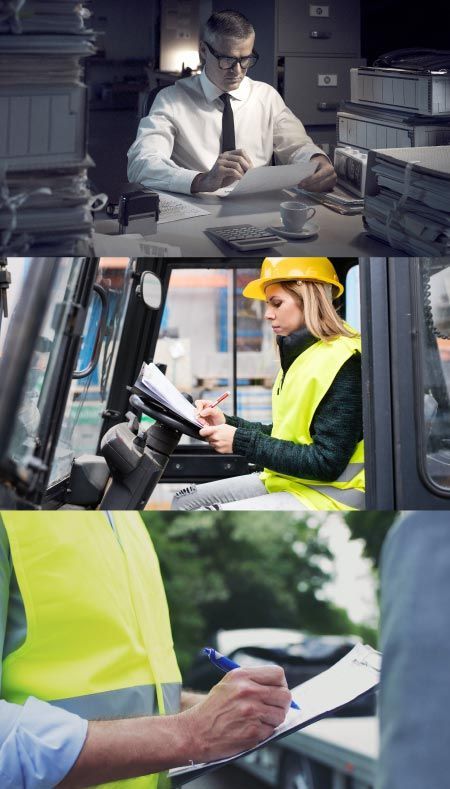
Many recycling operations still rely on manual and disconnected systems that limit their efficiency and tracking capabilities. Just as Virginia has released recommendations on improving recycling tracking, the broader industry is embracing technology in the shift towards circular economies and better environmental practices.
By digitalizing processes with software, recyclers can connect different stages of the recycling value chain, from collection to sorting, to processing. This enables them to track the quantity and quality of materials, optimize their performance and profitability, and demonstrate their environmental impact. Organizations can also leverage commercial waste recycling software to adapt to changing market conditions.
Unlike other industries that had to pioneer digital solutions from scratch, the recycling industry can benefit from existing best practices that have been proven in other sectors.
Digitalization is necessary to create new business opportunities and drive competitiveness in an evolving, high-value industry. In fact, the global circular economy has been estimated to grow to
4.5 trillion dollars by 2030.
The Importance of Digitalizing Recycling Operations
Digitalizing recycling operations means utilizing technology and data to make the industry smarter, more efficient, more responsive, and ultimately more sustainable. Some examples of digital technologies that can be applied to recycling operations include:
- Switch to E-manifests from paper and other forms of manual record-keeping to reduce errors and enable real-time waste shipment tracking.
- Leverage mobile and web applications to collect accurate information about recyclable materials' type, quantity, quality, and origin.
- Utilize dashboards to integrate data from multiple sources and waste streams for auditing and reporting on performance with key metrics such as diversion rates, greenhouse gas emissions, and cost savings or revenue.
- Adopt cloud-based platforms for real-time visibility, helping recyclers collaborate with stakeholders across the value chain, such as generators, haulers, processors, end-users, regulators, and even consumers.
- Deploy analytics, reporting, and measurement tools to create a single source of truth for monitoring the efficacy of recycling programs.
Recyclers need to identify opportunities for improvement, optimize processes, increase revenues, and demonstrate impact. By digitalizing recycling operations, organizations can gain a competitive edge in the market, enhance their reputation among stakeholders, and maximize resource recovery.
The Business Case for Digitalizing Recycling and Waste Diversion
Digitalizing recycling and waste diversion with software can help organizations achieve multiple benefits beyond environmental protection and regulatory compliance. The value of leveraging technology and data has been well documented, and the recycling industry is undergoing a technological renaissance for operational value add. Key business opportunities include:
Cost savings
Digitalizing manual and paper-based waste management processes could significantly improve operational efficiency throughout the value chain. This could translate into significant savings for organizations that generate large volumes of waste or manage multiple sites across the state.
Revenue generation
Accurate data on waste materials means organizations can predict and identify new opportunities for selling recyclable materials. This could create new revenue streams while reducing landfill fees or disposal costs.
Environmental protection
By digitally monitoring diversion rates from recycling operations, organizations can track environmental impact, analyze recycling rates, and measure greenhouse gas reductions associated with landfilling or incinerating waste materials.
Improved data quality and accuracy
Digital technologies can minimize and even eliminate human errors and biases in data collection, ensuring consistency and comparability across different materials, locations, and time periods for accurate reporting and auditing.
Enhanced regulatory compliance
Regarding waste reporting and disposal with verifiable evidence of waste recycling activities. Digital tools can also help prepare for potential regulation changes, such as Extended Producer Responsibility (EPR) programs requiring producers to manage their products at end-of-life.
Embracing technology and software means organizations (not just in Virginia) can operationalize their recycling programs, improve recycling rate tracking, and eliminate costly manual and redundant tasks.
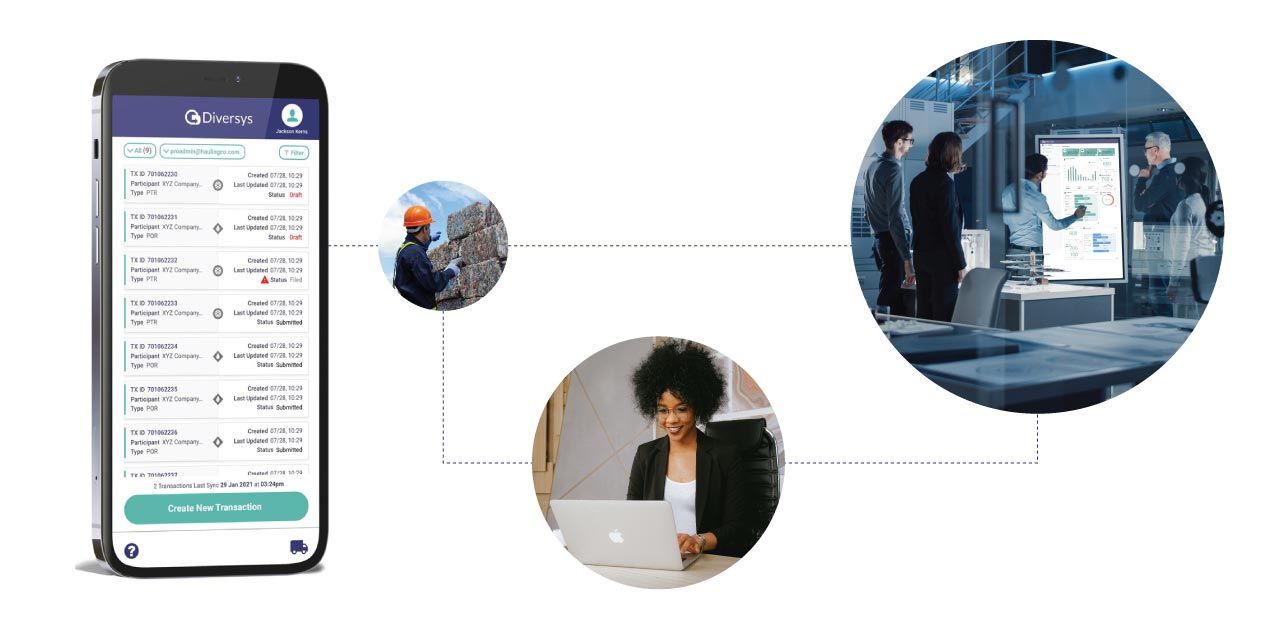
Diversys Recycling Software is Built for the Circular Economy
Diversys is a cloud-based recycling software solution that helps organizations improve their recycling programs, achieve environmental goals, and join the circular economy. Operators can easily manage transactions and claims from a single platform. Likewise, transporters and haulers can log transactions in 4 quick steps through our fully responsive mobile app.
Diversys customers have leveraged our complete recyclable tracking software solution to:
- Reduce errors and variances in data by minimizing and, in most cases eliminating error-prone manual processes such as reconciling paper records or manually inputting manifests and bills of lading.
- Prevent fraud using geographic data, ensuring collections happened in the correct jurisdictions.
- Save time and money by replacing costly manual and paper data capture processes with in-field data capture that improves the accuracy and reliability of data.
- Improve efficiency with applications without software experience so that operators, administrators, and in-field users can hit the ground running.
- Operationalize recycling programs with data to unlock critical business insights while streamlining compliance and reporting to take a data-driven approach to recycling program management.
- Leverage real-time, accurate data directly in their web browser so that they can immediately remediate issues or monitor activity through the cloud-based platform.
- Quickly adapt and evolve to address changing reporting requirements and scale operations more effectively with complete data oversight.
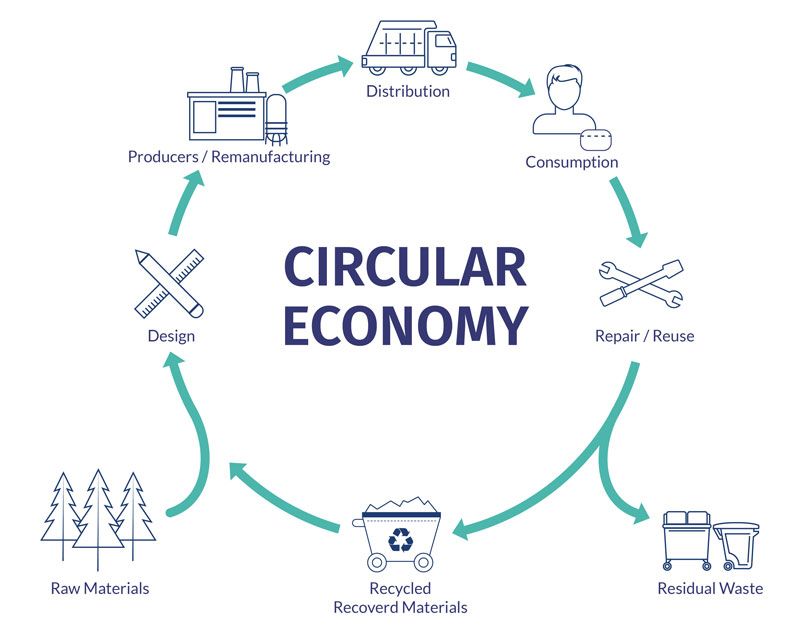
Digitalization of recycling can help industry participants improve operations, source recycled materials more efficiently and reliably, and prove environmental impact and social responsibility through accurate data capture. Our platform is designed to help public and private sector organizations digitally transform to measure and demonstrate their sustainability initiatives impact accurately.
Learn more about Diversys and how we help improve recycling operations and competitiveness while contributing to a more sustainable future for everyone.
Changing the Recycling Landscape with a Focus on Data
To meet state recycling tracking requirements (such as in the State of Virginia), a standardized and transparent approach to data collection and analysis is necessary to ensure consistent and comparable data capture across different jurisdictions. Digitalization will lead to accurate tracking of recycling programs while helping businesses comply with statewide initiatives. Digitalization can also help organizations reap the economic rewards of the growing circular economy, which aims to eliminate waste and keep resources in use for as long as possible.
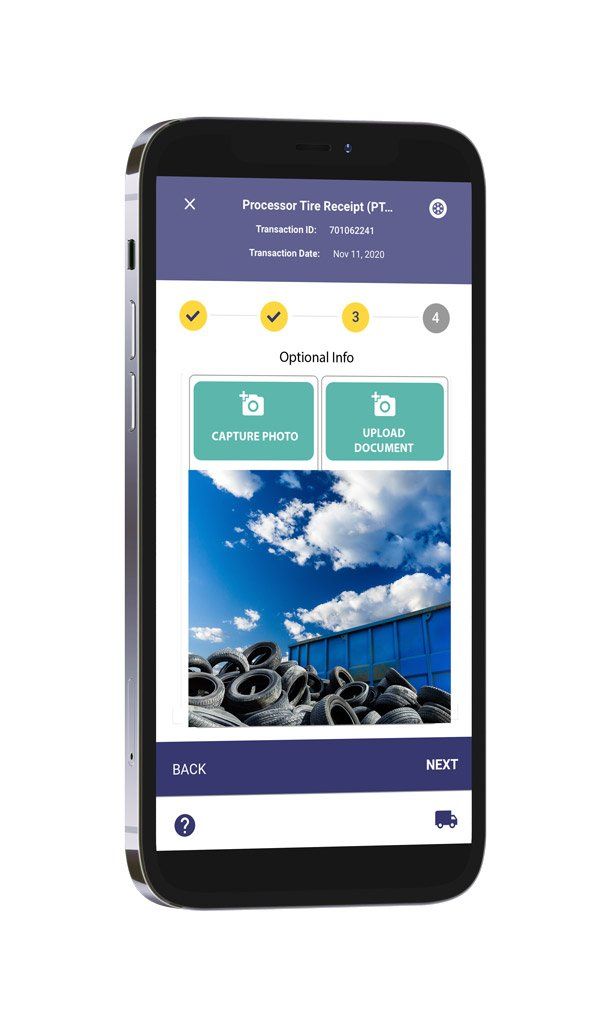
About Diversys
Diversys is proud to have its roots in Ontario, Canada - a province widely recognized for its leadership in EPR and sustainability. Since 2019, we've been dedicated to creating innovative software solutions that drive progress toward a world without waste.
Our story is a testament to the power of hard work, customer loyalty, and big ideas. We are committed to empowering organizations with the waste recycling software solutions necessary for achieving a sustainable future. Our cutting-edge software platform is helping organizations achieve their ESG goals, meet reporting obligations, and improve operational efficiency for their recycling programs.
Our commitment to delivering world-class solutions that drive meaningful progress towards waste reduction and a more sustainable future is unwavering. Our team of industry experts is ready to help you navigate the rapidly-evolving waste management landscape as we progress toward a circular economy.


